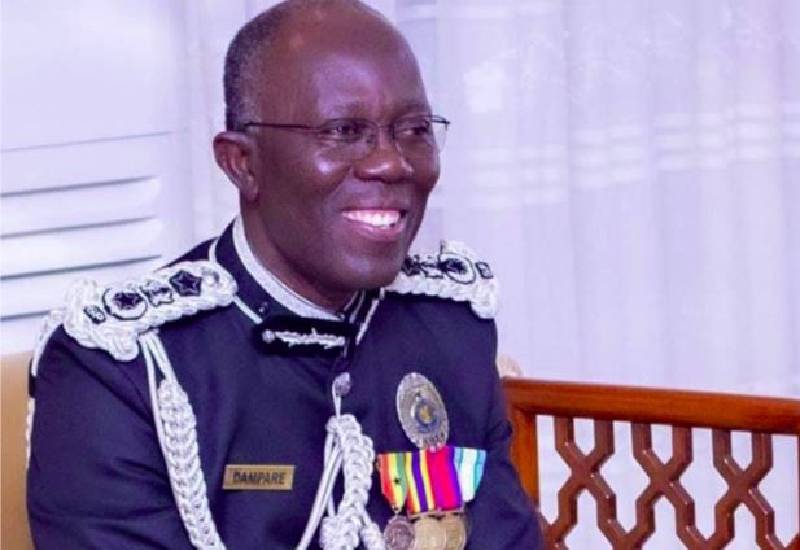By Godwin Owusu Frimpong
In a striking admission that exposes both a personal ambition and a deep-seated fear, Inspector General of the Ghana Police Service (IGP) George Akuffo Dampare has voiced his concerns that his successor may be “incompetent.” This statement, made during a recent Methodist Church event, provokes an array of questions about the current state of leadership in critical institutions and the future trajectory of the Ghana Police Service under a new regime.
While it is undeniably admirable for a leader to wish for the continued success and progression of their institution, Dampare’s sentiments point to an unsettling lack of confidence in the existing systems of succession. The IGP’s anxiety regarding a potential lack of capable leadership raises eyebrows — is he implying that the mechanisms in place to nurture and elevate future leaders are insufficient? Is there, perhaps, a tacit acknowledgement that the ranks of the police force may be filled with individuals who, while perhaps well-intentioned, may not possess the necessary skills or vision to elevate the service?
Dampare asserts that the legacy he and his colleagues have built should not only be maintained but expanded upon. However, this creates a paradox: if a successor is to be “better” than him, what are the criteria being utilized to measure this? Are we to assume that the only candidates worth considering are individuals who fit a narrow definition of competency defined by Dampare himself? This could lead to a stagnation of ideas and a homogenization of thought within the highest echelons of the police service, ultimately stifling innovation and dynamic leadership.
A further inquiry into Dampare’s statement reveals an implicit criticism of the current system of promotion and recruitment. It begs the question: What rigorous vetting processes or evaluations are in place to ensure that future leaders possess not only the qualifications, but also the vision and capability to foster progressive change? Instead of fearing incompetence in the ranks, should Dampare not advocate for systemic reform that develops and identifies capable successors?
Moreover, this appeal to divine intervention and the need for collective prayer raises an intriguing point about the intersection of faith and professional duties. While spiritual beliefs can certainly fortify leadership values, should the future of an entire institution really be left in the hands of a higher power? This reliance on divine providence could imply a troubling abdication of responsibility by current leadership to actively prepare their teams for a seamless transition.
In a nation grappling with calls for police reform and public accountability, Dampare’s comments serve as both a rallying cry for excellence and a cautionary signal about underlying weaknesses in leadership pipelines. The pressure is on for him, and indeed the entire Ghana Police Service, to define what “competence” truly looks like in a 21st-century context—one that prioritizes community engagement, inclusivity, and modern policing strategies.
Ultimately, while the IGP’s fears are valid and reflect a genuine concern for the welfare of the Ghana Police Service, they also highlight broader systemic issues that require urgent attention. The narrative he presents is not merely about the fear of succession but points to a larger question: Is the foundation being laid for a future that can both honor the present and innovate for tomorrow? The time for introspection and proactive measures is now, lest the quest to avoid incompetence become yet another echo fading into the halls of bureaucracy.
Godwin Owusu Frimpong




